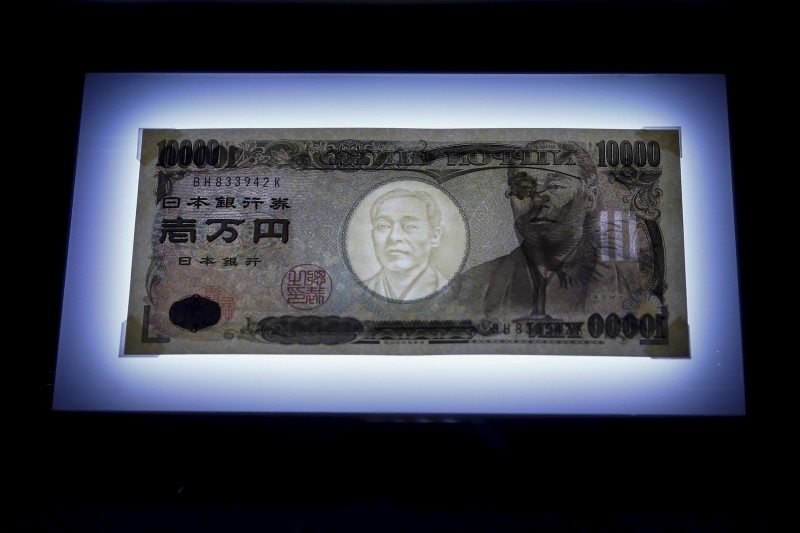* Yen benefits from dip in oil, stock markets
* Aussie, kiwi dollars gain on Chinese numbers
* Japan's Kuroda, Aso remark on yen's recent rapid moves
* Eyes on G20 meetings in Washington, ECB next week
By Patrick Graham
LONDON, April 15 (Reuters) - The dollar fell half a percent against the yen on Friday as a pull back in oil prices ahead of weekend talks between producers in Doha capped investors' appetite for risk and sent capital towards the traditional security of Japan.
The major currencies seen as most dependent on China were also among those rising after a batch of GDP data offered hope that the world's second largest economy was heading for a rebound after its slowest growth in seven years.
The Australian AUD= and New Zealand dollars NZD= , generally in more bullish form since long-term downtrends bottomed out in January, rose 0.3 and 0.9 percent respectively.
The yen was higher across the board, rising to 108.85 yen per dollar and 0.4 percent to 122.77 per euro. It is still well short of highs hit at the start of the week.
"There is some profit-taking but I think this market is largely driven by oil," said Stephen Gallo, a strategist with BMO in London.
"More generally, it is a very fickle market at the moment. There's not a lot of conviction or ability to put on clear trending macro trades and we have seen the dollar both rise and fall with improved risk appetite this week."
U.S. stocks have risen despite generally downbeat expectations for the start of the earnings season and European shares are up for the first week in four. The U.S. currency was still up 0.5 percent on the week in trade-weighted terms.
It was up 0.2 percent against the euro at $1.1285. Commerzbank (DE:CBKG) strategist Thu Lan Nguyen said those gains may be partially the result of expectations of another pro-easing message from the European Central Bank next week.
"The general theme is a slight recovery of the dollar as well as some euro weakness, which may have to do with people preparing for the ECB meeting," she said.
The run in to a gathering of G20 financial leaders in Washington has been marked by rhetoric from Japanese officials used in the past to prepare markets for intervention to weaken the yen.
Japan's Finance Minister Taro Aso said he had expressed deep concerns to U.S. Treasury Secretary Jack Lew over one-sided currency moves. Bank of Japan Governor Haruhiko Kuroda also said in Washington that the yen's "excessive" rises have been corrected somewhat in the past few days. it is the Ministry of Finance, not the central bank, that determines Japan's currency policy, Kuroda's remarks were notable in that it was the first time he described the yen's appreciation as "excessive".
Traders in Asia reported that Japanese importers had bought dollars on Friday as a "gotobi" date - a multiple of five - on which books are traditionally settled.
"Today is 'gotobi,' so it's natural for the dollar to rise a little bit," said Masashi Murata, senior currency strategist at Brown Brothers Harriman in Tokyo.
(Editing by Andrew Heavens and David Evans)
